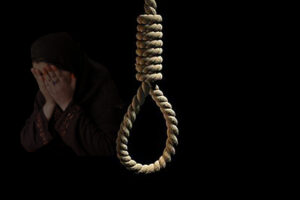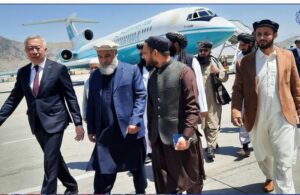KABUL (SW) – The United Nations Secretary-General Antonio Guterres has renewed a call for Afghanistan’s Taliban to remove curbs on women’s rights to work and education as he prepares to convene a meeting of envoys from several countries Monday to discuss the situation in the strife-torn nation.
The two-day closed-door gathering in Qatar’s capital, Doha, will discuss a “common way forward” on how to engage with the Taliban in the aftermath of their latest edicts banning Afghan women from working with the U.N. and other aid organizations. “Reversing all measures that restrict women’s rights to work is key to reaching the millions of people in Afghanistan that require humanitarian assistance,” Guterres tweeted late Saturday.
U.N. officials say the restriction on female aid workers has dealt a blow to humanitarian operations in the country where millions of Afghans are just a step away from famine-like conditions, reported the VOA.
Special representatives from various countries and international organizations will attend the Doha meeting, but Guterres “has not extended an invitation to the de facto [Taliban] authorities,” his spokesperson told reporters Friday.
“The purpose of the meeting is to reinvigorate international engagement around common objectives for a durable way forward on Afghanistan and to reach a sort of unity or commonality of the message, such as human rights, particularly on the issue of women and girls, inclusive governance, countering terrorism, drug trafficking,” Stephane Dujarric, a spokesperson for the secretary-general, said.
Dujarric declined to share the list of participants. He did not disclose the venue of the huddle in the Qatari capital.
The Taliban regained power in August 2021 as the United States and NATO troops departed Afghanistan after almost two decades of involvement in the war.
Hibatullah Akhundzada, the reclusive chief of the fundamentalist Taliban, has since barred girls from attending schools beyond the sixth grade and most women from working across the impoverished nation.
Akhundzada has rejected international calls for ending curbs on women and girls, saying he will not allow any foreign interference in his Islamic governance.
On Thursday, the U.N. Security Council unanimously condemned the restrictions on women and called for their urgent reversal.
The Taliban foreign ministry rejected the call and described the ban on women working with the U.N. as an “internal social matter of Afghanistan.”
The Doha meeting has been marred by controversy over whether it will also discuss the recognition of the Taliban government.
The controversy stemmed from U.N. Deputy Secretary-General Amina Mohammed’s remarks at a seminar in April at Princeton University, where she suggested recognition would also be on the agenda.
“We hope that we will find those baby steps to put us back on the pathway to recognition … of the Taliban,” Mohammed said.
Her comments have since forced the U.N. to repeatedly clarify that “recognition is not an issue on the table.”
“What I would say is that any kind of recognition of the Taliban is completely off the table,” said U.S. State Department spokesperson Vedant Patel.
On Saturday, about two dozen Afghan women staged a protest in Kabul, demanding the U.N. not formally recognize the Taliban government at Monday’s meeting. They said doing so would amount to violating women’s rights.
Protesters chanted they would fight and die for taking back their rights, accusing Guterres of “lobbying for Taliban recognition.”
Dujarric dismissed suggestions Friday that the U.N. intends to leave Afghanistan due to restrictions on its female staff.
“There is a review going on, on how we do our work. But we’re trying to walk a fine line, which will need to ensure the delivery of humanitarian aid,” he said.
ENDS






